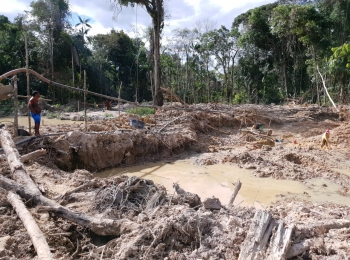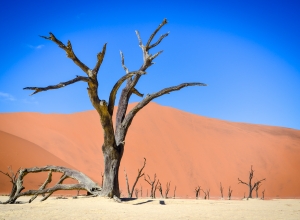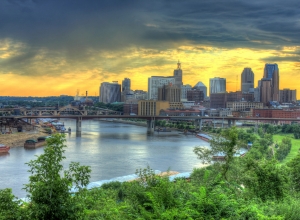The Environmental Defenders Crisis : Towards a Geneva Road Map
"More than three people were murdered each week in 2018, with countless more criminalised, for defending their land and our environment", Global Witness informs us. Three persons each week killed for standing up for the environment. It is paradox of our times that we are constantly called to protect the environment, yet unable to protect those who speak up. What can be done about this crisis ? Indeed, what is the role of diplomatic hubs like Geneva in making a difference ?
Recently, the Environmental Governance and Territorial Development Institute at the University of Geneva co-hosted a series of international Science Policy events bringing together academia, civil society actors and defender representatives to address the growing crisis of violence against environmental defenders. Supported by the Boninchi Foundation and the Geneva Science Policy Interface, together with Earthjustice and the Geneva Environmental Network, we sought to bring human rights and environmental communities together to explore and bridge knowledge and harness collective forms of action and cooperation.
As public attention grows to the changing conditions of environmental civil society and defenders, a number of research, civil society and multilateral initiatives are emerging to better understand the challenge and respond. Our events sought to bring together a number of such initiatives to take stock of the situation, review existing support initiatives and debate possible responses. For two days, defenders sat with UN Special Rapporteurs, researchers and activists to shape the contours of a collective Geneva Road Map.
Discussions were opened by UN Special Rapporteur on the situation of human rights defenders, Michel Forst. Drawing on his extensive experience, thematic reports as well as country-visits, he called for better recognition, also of the diversity of environmental defenders. Both business and state actors can and should do more to step up protection efforts.
Followingly, a panel of defenders from Russia, Philippines, Brazil, Kenya, Turkey and Mozambique brought all participants back to deepening and disturbing challenges faced on the ground. Testimonies of personal threats, loss of family members, criminalization and the lack of voice in decision-making leave us little doubt about the severity of the problem complex. Academic partners from Sussex, British Columbia and the University of Geneva in turn drew attention to underlying drivers, patterns of violence and trends identified in emerging research.
If the environmental crises are at times daunting, the good news is that there is growing momentum to tackle the challenge of protecting environmental defenders at the frontline. Both human rights organizations and environmental actors have stepped up action ranging from civil society efforts to multilateral efforts by UNEP and reporting by the Special Rapporteur on human rights and the environment, David Boyd.
In 2019, a landmark resolution from the Human Rights Council specifically addresses the protection needs of environmental human rights defenders. And soon, a landmark resolution for the conservation community has been proposed for the thousands of conservationists meeting at the World Conservation Congress set to take place in Marseille in June, 2020. Yet, how indeed to turn ambitious objectives into real change ?
Just a few weeks before our meeting in Geneva two environmental defenders in the Monarch Butterfly Biosphere Reserve in Mexico were found dead after having challenged illegal logging and land-grabbing for the production of avocados. The biosphere reserve, inscribed as a World Heritage site in 2008, is the site of the spectacular return of millions of butterflies returning to the area every autumn. The site is today, yet another crime scene in a globally occurring assault against those who speak up and act for the environment.
Our minute of silence at the beginning of the meeting was little consolation for this or any other killing, yet sparked two days of intense dialogue to, indeed, break the silence. Four lines of collective action were identified calling partners to :
- Reverse the tide of marginalization and attacks against environmental actors
- Reinforce environmental rights, enabling civic spaces and accountability
- Bridge initiatives and enhance cooperation
- Break isolation
We didn’t want to keep the conversation for ourselves. Indeed, meetings were truly collective with defenders, academia, permanent missions, CSOs and international organizations joining forces.
As we reached out to the Geneva audiences, a public event was introduced by the Rector of the University, the Mayor of the city and the Director General of the IUCN. Defenders spoke to the hearts and minds of International Geneva sparking interest and concern.
The following day, a well-attended side-event at the Human Rights Council, co-sponsored by the Permanent Missions of Fiji and Switzerland, brought the message across to the diplomatic community. Defenders were offered a space to speak up, raising the topic with the international community. The meetings also served to launch the Geneva Road Map process soon to be hosted on the website Environment-rights.org, a resource portal for environmental defenders. If the situation is dramatic for individuals, their families and organizations, we can and must do more to deepen understanding of the challenges and respond effectively. International Geneva has a lot to offer by sending a strong signal, enabling both formal and informal conversations elsewise foregone and connecting the dots.
For further information :
Workshop & Public Roundtable - Supporting Environmental Defenders
Side-events reporting through the Geneva Environmental Network can be accessed through the following links :
Supporting environmental defenders : How can we mobilize the international community ?
HRC43 Side Event - The Environmental Human Rights Defenders Crisis : Towards a Geneva Road Map
This article is also published on the Geneva Science-Policy Interface blog.
Peter Bille Larsen
Peter Bille Larsen works on conservation and social justice issues at both local and global levels. After initial experiences in Oxford, Geneva and Lausanne, he lectured on sustainable development, environmental anthropology and human rights at the Department of Anthropology of the University of Lucerne. He is currently senior lecturer in the environmental studies programme on sustainable development and environmental governance and associate researcher at the Environmental Governance and Territorial Development Institute (GEDT) of the University of Geneva. He works actively with several international organizations, NGOs and academic partners to strengthen analysis and policy discussions on a wide range of sustainability and social justice topics.



